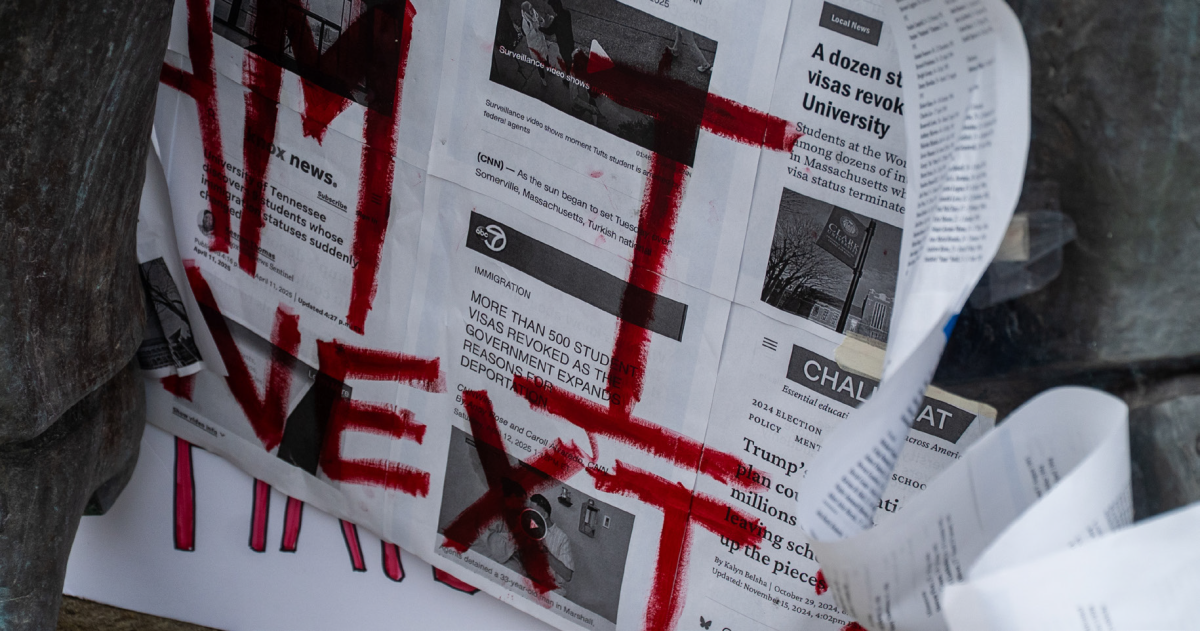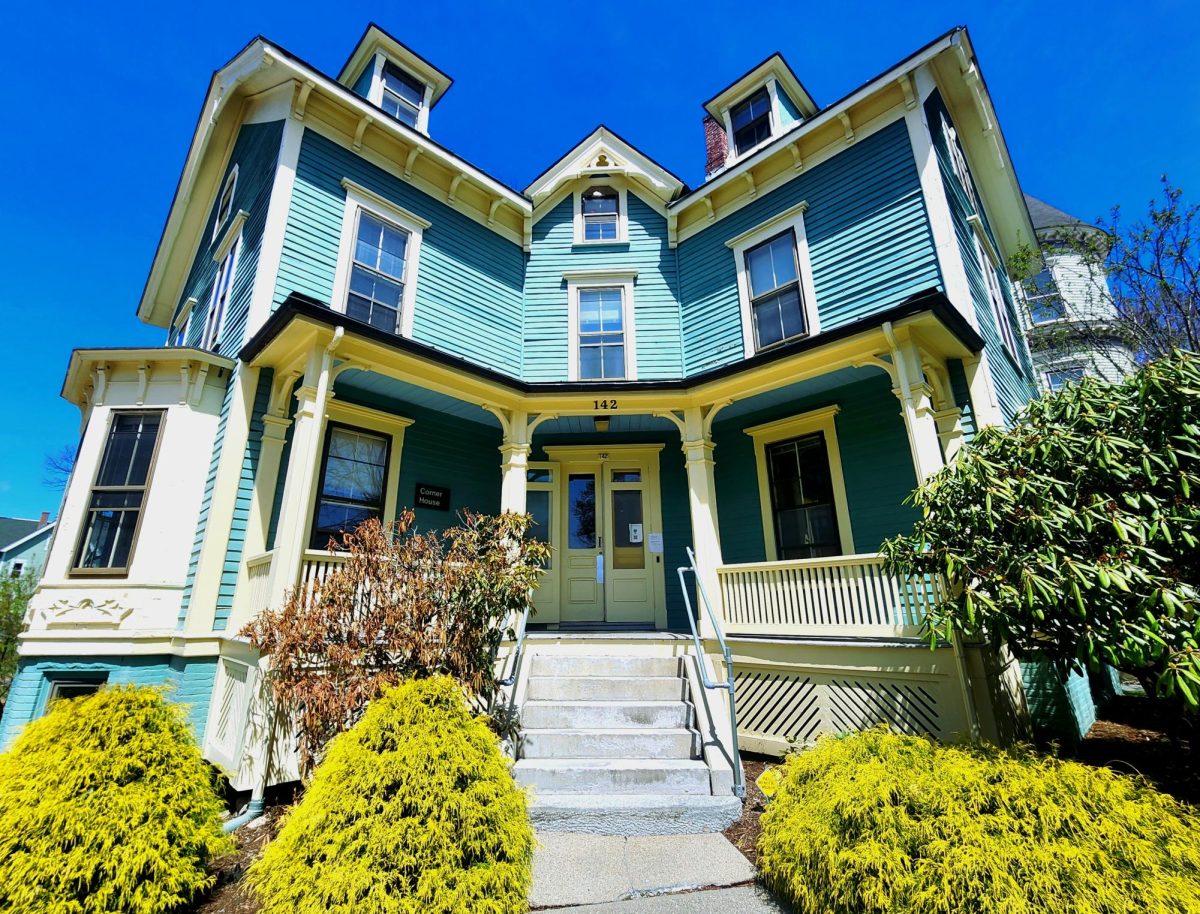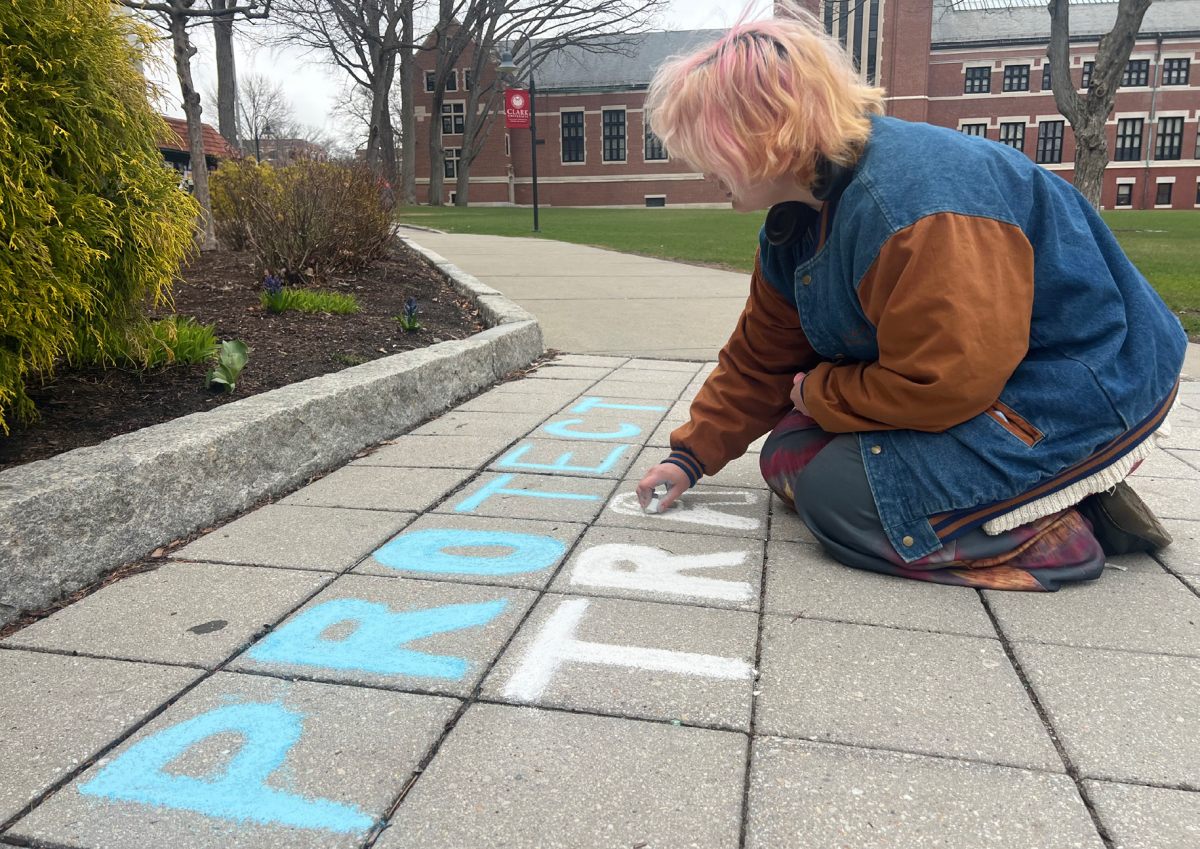As of October 25, Clark University officially changed the Community Values portion of the Student Code of Conduct. The changes removed a paragraph which stated that speech made by students and clubs which made others feel “uneasiness” could be held to disciplinary action.
“We encourage all of you to avoid using slogans, clichés, or behaviors that contribute to feelings of uneasiness,” the original policy read. “We thoroughly investigate each incident. Furthermore, we promptly remove any language once it is brought to our attention. Students or student organizations found violating these shared community values will be held accountable through the conduct process.”
The new version of the Community Values policy in the Student Code of Conduct Handbook is a simple shortening of the previous. It is two sentences long and ends with “each member of the Clark community plays a crucial role in upholding these values.” It does not say anything about holding Clark community members accountable to these community values.
The Scarlet met with geography faculty member Dr. Gustavo Oliveira, who is a member of the University Conduct Board (UCB), to learn how and why these changes were made. The UCB is “led by the Dean of Students and includes invited students and staff, and three faculty appointed by the Steering Committee of the Faculty Assembly,” Oliviera said. “The faculty on the UCB represent faculty interests in University governance, such as maintaining academic freedom and freedom of expression.” These concerns were first raised by the UCB over in the spring and intensified during the summer and school year.
The University Conduct Board and Chair of the Faculty met regularly with representatives from the administration to discuss faculty concerns with this policy.
The Scarlet also met with Political Science faculty members Dr. Ora Szekely and Dr. Robert Boatright. Both faculty members identified as particularly active in the discussion to change the Community Values Policy.
Dr. Szekely and Dr. Boatright were both members of the Free Expression Task Force. The task force created the Speech Rights and initial Community Values policy under President David Angel during the 2017-2018 academic year, wherein Dr. Szekely performed the role of co-chair. The goal of the initial policy was “ [to] maximize freedom of expression and protect people who have not always been very well protected at universities,” Dr. Szekely said.
As a result of their work in the Free Expression Task Force, both Dr. Szekely and Dr. Boatright had concerns upon learning of the Community Values Policy.
“The original language [of the Community Values Policy] at the beginning of this [academic] year, in our opinion, was incompatible with the speech policy,” said Dr. Boatright, outlining some of the concerns that Dr. Oliveira voiced.
The Political Science faculty members in conjunction with the Chair of the Faculty, Dr. Kristen Williams, discussed their concerns with Dean Kamala Kiem. This group worked with the University Conduct Board to change the Community Values policy.
“We requested that the language in the Code [of Conduct] that we thought was in conflict with the [speech] policy, be struck, and it has been struck,” said Dr. Boatright.
However, Dr. Szekely and Dr. Boatright were careful not to blame anyone. Boatright stated that University policies are a “process of getting it right.”
The professors also touched on Clarkies patrolling their own speech.
“Classmates police each other’s speech in a way that I think can dramatically inhibit what people say,” Dr. Boatright said. “The thing I worry a lot about is the climate on campus.”
“I’ve broadly been really impressed with the questions that students ask, with the conversations that those events have allowed to take place,” Dr. Szekely said. However, she was unclear about how students discuss outside of the classroom or University-sanctioned events.
Dr. Szekely reiterated that faculty are committed to the ongoing functioning of the institution.
“Clark is a place where really broadly, faculty really care about the institution, and really care about students,” she said.
This deep concern for University happenings are why faculty were so concerned about the changed freedom of expression policy. Some faculty felt that their concerns were not being heard, and so tensions rose between faculty and the administration.
Eventually, these tensions lead to an open letter to faculty and administrators by a few faculty members regarding the previous (now changed) Community Values policy. This open letter had specific names and issues these faculty members had with the disciplinary process. As it contains such details, The Scarlet cannot publish this letter. The specifics also make it difficult for the Administration to respond directly, said Dr. Oliveira, and as such the Administration has hired an outside lawyer to address this issue.
In response to this open letter the Administration has suspended meetings with the University Conduct Board, effectively shutting faculty out of these discussions. The University has hired an outside law firm to review their Code of Conduct and the disciplinary practices of the administration in addition to other legal services. Until this review is completed, it is unclear how disciplinary action for violations of the community values statute will be handled.
Following the conclusion of that review, faculty governance such as the University Conduct Board will be able to work with administration to address the student conduct process. Until then, or until administration responds to various written questions submitted by faculty, faculty are in the dark about disciplinary practices.
“We have long functioned under a shared governance model in which administration, faculty, and our Board of Trustees are involved in institutional decision-making, with specific roles and responsibilities determined by the specific task at hand,” Director of Marketing and Communications, Jill Friedman, said in a written interview with The Scarlet.
Friedman also said that the hiring of an external lawyer was part of a “return to an earlier practice of utilizing external legal counsel.” According to Friedman, managing the internal review of the Code of Conduct is “part of their overall support of the University.”
In regards to the walk-back of the restrictive earlier policy, Friedman said that the policies were updated to “to ensure consistency and clarity across our policies,” mirroring what Drs. Szekely and Boatright said.
However, this attempt at clarity has created an opportunity for confusion in the short term.
This bureaucratic limbo puts protest movements on campus in a sticky position. As of now, according to the Code of Conduct, protestors should be more free to campaign loudly and openly for their causes than under the previous policy. However, with the nebulous way the University will handle any conduct cases that do arise, groups may not be so bold.
Dr. Szekley added that regardless of whether protest movements achieve their stated goals, the act of working together to achieve them can still be very helpful, and lead to movement in the right direction.
“Even if the specific task is not met, do not be discouraged,” Dr. Szekely said. “The process of participating in a movement has other consequences that you may not recognize at the time but are still powerful and important.”




Daniel Broderick ~ Nov 22, 2024 at 8:33 pm
It’s great to see Clark refining its policies to promote a respectful campus environment. It’s important we as peers police each other’s ideas to unify our campus community. It brings to mind the radical success of the Cultural Revolution in Mao’s China. Hopefully, we can bring that same culture to Clark University.
Ryan Rothberstein ~ Nov 22, 2024 at 8:28 pm
Clark is making a big mistake with this! Unrestricted free speech facilitates the spread of harmful stereotypes and antisemitism and it negatively impacts Jewish communities in particular. Also undocumented immigrants can be unfairly targeted with crime stats too